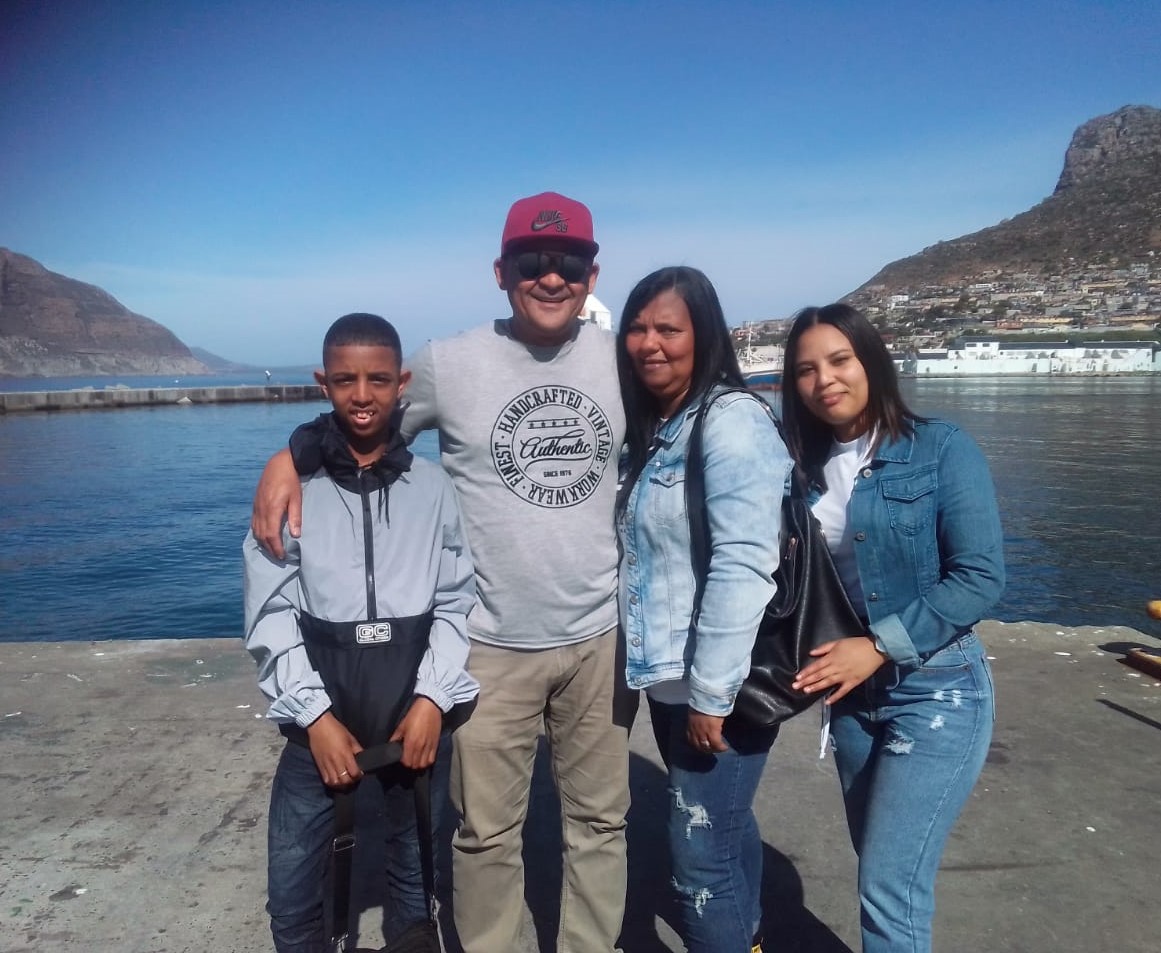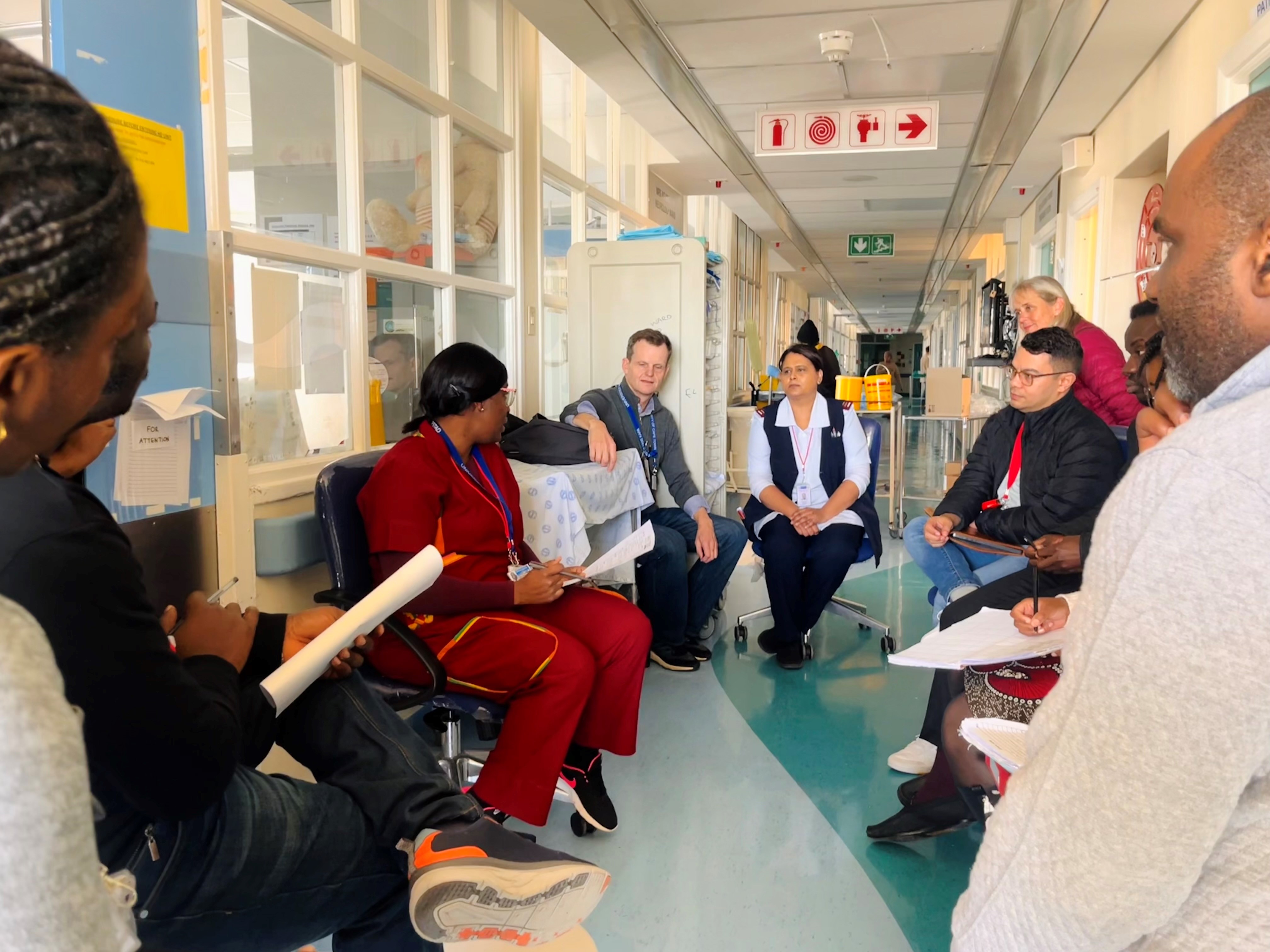
News
A second chance at life: Organ donation transforms lives in the Western Cape
Organ donation is the process of giving an organ or a part of an organ to someone who needs it to survive or improve the quality of their life. Organ donation and transplantation is more than just a medical procedure; it’s a remarkable gift of life. With each donation, at least seven lives can be saved, offering hope and a healthier future to those in need.
With Organ Donor Month in the spotlight this August, we can all learn how we can make a difference through this life-saving cause.
The Van Aarde family’s story highlights the importance of organ donation. Luke Van Aarde’s parents, Randall and Carol, both donated their kidneys to save his life. Luke was born with underdeveloped kidneys. At the age of two, in 2009, Luke was diagnosed with kidney failure.
“My son was two years old when I donated my kidney to him and, in 2019, my wife donated hers to save our son’s life. This gave our son a second chance, this is our child. All of us have this opportunity, no matter whether it’s your family member, a neighbour or a stranger who needs your help. If you had the chance to give someone else a second chance in life, what would you do? I encourage people all the time to become donors and we share my son’s survival story as an example of what organ donation can do. You can save many lives by getting involved.”
This year, Luke will celebrate his 18th birthday. Randall shares his gratitude for the support received from healthcare workers at the Red Cross War Memorial Children’s Hospital.
“I can only compliment the team at the Red Cross War Memorial Children’s Hospital. They were with us every step of the way since Luke’s birth. We talk about what the healthcare workers did and still do for us and all those in need of help; and we also talk about how organ donation makes a difference to our family, friends and neighbours. Our way of giving back is spreading the word and my friend stepped in to donate party packets to children at the hospital as a way to say thank you.
HELP US SPREAD THE WORD
Right now, at least 20 children are on the waiting list for solid organ donations at the Red Cross War Memorial Children’s Hospital. Solid organ donation refers to the heart, lungs, liver, kidneys and pancreas.
Red Cross War Memorial Hospital CEO Dr Anita Parbhoo is appealing to members of the public to embrace the gift of life through organ donation. “Your decision to become an organ donor can be a beacon of hope for seriously ill children and adults I need. I encourage all people to embrace to explore this opportunity to give someone in need a second chance.”
Professor Mignon McCulloch, the head of the paediatric renal unit and solid organ transplant programme at Red Cross War Memorial Children’s Hospital, as well as the current President of the South African Transplant Society (SATS), says the gift of organ donation allows both children and adults to return to school and their families.
“Organ donation is really important in children… as children with a chronic illness usually need to spend weeks, months and even years in hospital. Being offered a new organ or relevant tissue, gives children a second chance in life allowing them to return home to their families, communities and school. Children require solid organs including kidneys, livers, hearts and lungs as well as tissues such as skin, cornea and bone marrow.”
Professor McCulloch shares that South Africa has one of the lowest organ donation rates in the world.
“Globally organ donation is now increasingly accepted in many countries. Unfortunately, in South Africa, we have one of the lowest donation rates in the world at 1.8 donors per million population. This is mainly due to lack of knowledge and understanding around organ and tissue transplantation. Many leaders, including religious leaders, support the principle of organ donation as it is serving others and saving lives.”
Over the past three years, the Red Cross War Memorial Children’s Hospital has saved the lives of several children through organ donation. This includes:
- 30 kidney transplants in the last 3 years
- 10 liver transplants in last 3 years
- 3 heart transplants in last 3 years
- 1 lung transplant (performed at Groote Schuur Hospital)
“The act of donation literally saves lives and gives people a second chance in life and this is especially important in children who may wait for many years, taking away their childhood which makes them hospital dependent and unable to be part of their family or go to school regularly,” says Professor McCulloch.
Transplants are carried out by a dedicated team of healthcare professionals, including surgeons, physicians, intensive care teams including nurses and allied health experts, who offer comprehensive support to both patients and their families throughout the process.
Sr Bongisa Ndamase, transplant coordinator at the Red Cross War Memorial Children’s Hospital, adds: “I want to speak as a Christian. Because as we know, we aim to give back. Organ and tissue donation can be part of giving back. One person can save seven people with solid organs. By donating, you’re changing someone’s life and you’re allowing them to be with their families. They can attend school and live a normal life.”
Solid organ donation versus Tissue donation
Did you know that you can donate your tissues? Organ donation and tissue donation are both crucial components of medical treatments in adults and children, but they involve different types of donations and have different purposes.
Solid organs include your heart, liver and pancreas and lungs, while tissue donations include your corneas, skin, bone, tendons and heart valves. An example of a tissue donation includes corneal transplants to restore vision or skin grafts for burns survivors. You can help at least 50 people through tissue donation.
Organs are typically transplanted to replace a failing or damaged organ in a recipient's body, while tissue donation helps repair or replace damaged tissues, improve vision, or assist in reconstructive surgeries.
Another example of tissue donation includes bone marrow donation. Bone marrow is the soft, spongy tissue inside bones where blood cells are produced. Professor Marc Hendricks, paediatric oncologist at the Red Cross War Memorial Children’s Hospital, shares: “Every patient who undergoes a transplant is given a second chance to live a normal life, free of medical treatments. Unlike solid organ transplants, all bone marrow recipients are weaned off their immunosuppression once their bodies have accepted their new marrow. Only a minority of patients require longer term medication to support their new graft.”
Professor Hendriks says that bone marrow donation is a potentially life-saving contribution which every healthy South African should consider undertaking.
“It is a simple procedure which involves drawing of a blood sample from the arm. Many people are under the impression that they have to donate physical marrow which is not true. A peripheral blood sample gives us all the information we need to know if you are a potential match for someone looking for a bone marrow donor. Becoming a donor means you could potentially save someone's life.”
The Red Cross War Memorial Children’s Hospital has saved the lives of 18 children through bone marrow transplants in 2023.
How you can get involved
There are many ways that you can make a difference and help us save lives.
If you want to become a bone marrow donor, contact the South African Bone Marrow Registry. Visit their website and follow the easy steps to register: www.sabmr.co.za
At the same time, for solid organ transplants, Organ Donation Foundation (ODF) of South Africa actively works to implement education and publicity programmes that are designed to raise awareness of organ and tissue donation with the aim being to prime individuals towards consent.
Part of its awareness efforts includes sharing where you can donate. Becoming a transplant donor is easy. You can register online or call the Organ Donor Foundation’s toll-free line on
0800 22 66 11 or https://odf.org.za
The organisation will send you a small organ donor card to fill in and carry in your wallet. The organisation will also send you a sticker to put on your ID document and on your driver’s licence.
It is very important to discuss the decision with your family. Let them know that you want to donate your organs / tissue after death. Ask them to honour your wish when you die.”
There are no costs involved in organ donation and your family will not be responsible for any medical costs.
Learn more here: https://odf.org.za/faqs







